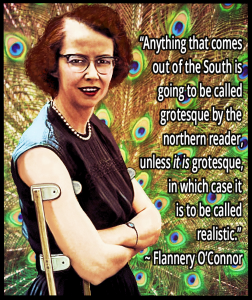1,836 words
Like her near-contemporary Gore Vidal (both were born in 1925), the fiction writer Mary Flannery O’Connor had her first brush with fame via a Pathé movie newsreel. She had a pet chicken whom she’d taught to walk backward. Gore’s fame came a few years later when he piloted an airplane, age ten. (more…)










